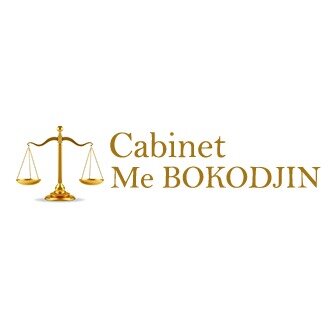Best Sustainable Finance Lawyers in Togo
Share your needs with us, get contacted by law firms.
Free. Takes 2 min.
Or refine your search by selecting a city:
List of the best lawyers in Togo
About Sustainable Finance Law in Togo
Sustainable finance involves the process of considering environmental, social, and governance factors when making investment decisions in the financial sector. In Togo, sustainable finance laws are emerging to address issues such as climate change, responsible business practices, and green investment. The government and regulators encourage the integration of sustainability into projects and business operations, aiming to promote economic growth that benefits society and the environment. As Togo is part of the West African Economic and Monetary Union (WAEMU), its legal approach is also influenced by broader regional standards and global principles relating to sustainable development.
Why You May Need a Lawyer
Seeking legal advice in the field of sustainable finance is common for various individuals and organizations. Common situations include navigating regulatory requirements for launching green bonds, understanding compliance obligations for sustainable investments, crafting contracts for renewable energy projects, or handling disputes related to environmental impacts. Entrepreneurs, financial institutions, developers in clean energy, and investors all benefit from legal guidance to ensure that business activities align with both national and international standards on sustainability. Lawyers play a key role in steering clients through complex legal landscapes, preventing costly mistakes, and supporting responsible business operations.
Local Laws Overview
Togo has taken solid steps to align its financial and economic sectors with sustainable development goals. Key aspects of Togo’s local laws and regulations relevant to sustainable finance include requirements for environmental impact assessments in major projects, incentives for renewable energy development, and the implementation of sustainable public procurement policies. Additionally, Togo adheres to WAEMU regulations which guide environmental and social risk assessments in finance.
Businesses are increasingly required to report on their environmental and social impacts and to demonstrate responsible investment practices. The government has also created frameworks for green bonds and other financial instruments aimed at supporting climate-related initiatives. These evolving laws necessitate up-to-date legal counsel to ensure ongoing compliance and strategic business decisions.
Frequently Asked Questions
What is sustainable finance?
Sustainable finance refers to financial activities and investments that consider environmental, social, and governance (ESG) aspects, promoting responsible long-term economic growth.
Is sustainable finance required by law in Togo?
There are laws and regulations in Togo requiring certain aspects of sustainable finance, especially for sectors with significant environmental impact or those seeking to benefit from state incentives and international financing.
What types of sustainable finance instruments exist in Togo?
The main sustainable finance instruments in Togo include green bonds, climate-focused loans, and incentive programs for renewable energy and environmentally friendly businesses.
Who regulates sustainable finance in Togo?
Regulation is managed by several government ministries, most notably the Ministry of Economy and Finance, along with sectoral authorities and, for financial matters, the Central Bank of West African States.
Can foreign investors participate in sustainable finance projects in Togo?
Yes, foreign investors can participate, provided they comply with both Togolese laws and any applicable regional or international standards.
Are there incentives for sustainable investments?
The Togolese government offers various incentives for sustainable investments, such as tax reductions or exemptions, access to grants, and support for projects that promote renewable energy or low-carbon solutions.
What is an environmental impact assessment and when is it required?
An environmental impact assessment is an evaluation process required for projects with significant potential environmental effects. It is mandatory before the start of certain projects, especially those in sectors like energy, infrastructure, or agriculture.
What legal risks exist in sustainable finance?
Risks include non-compliance with environmental and social regulations, contractual disputes with project partners, and challenges in navigating changing laws and standards at both the national and international levels.
How do I ensure my project is compliant with sustainability laws in Togo?
It is important to consult with local lawyers experienced in sustainable finance, ensure proper documentation, conduct necessary assessments, and work closely with regulatory authorities.
Where can I find more information on sustainable finance regulations?
The best sources are national government agencies, legal professionals specializing in finance and sustainability, and official publications from regional organizations like WAEMU or the BCEAO.
Additional Resources
- Ministry of Economy and Finance of Togo: Responsible for financial regulations, including incentive programs. - Ministry of Environment and Forest Resources: Issues related to environmental impact assessments and conservation. - Central Bank of West African States (BCEAO): Oversees banking and finance within WAEMU, including Togo. - West African Economic and Monetary Union (WAEMU): Regional laws and sustainability frameworks. - Togo Chamber of Commerce and Industry: Guidance for businesses looking to adopt sustainable practices. - Local law firms and legal aid organizations experienced in environmental, business, and finance law.
Next Steps
If you need legal assistance in sustainable finance, start by defining the scope of your project or investment and identifying any immediate legal or regulatory questions. Gather all related documents, permits, and any communications with regulators. Consult a lawyer who is knowledgeable in both Togolese law and sustainable finance matters. Legal professionals can help review contracts, assist in navigating regulatory policies, and provide advice on compliance and reporting obligations. Consider reaching out to relevant government bodies or support organizations for additional information and resources.
Lawzana helps you find the best lawyers and law firms in Togo through a curated and pre-screened list of qualified legal professionals. Our platform offers rankings and detailed profiles of attorneys and law firms, allowing you to compare based on practice areas, including Sustainable Finance, experience, and client feedback.
Each profile includes a description of the firm's areas of practice, client reviews, team members and partners, year of establishment, spoken languages, office locations, contact information, social media presence, and any published articles or resources. Most firms on our platform speak English and are experienced in both local and international legal matters.
Get a quote from top-rated law firms in Togo — quickly, securely, and without unnecessary hassle.
Disclaimer:
The information provided on this page is for general informational purposes only and does not constitute legal advice. While we strive to ensure the accuracy and relevance of the content, legal information may change over time, and interpretations of the law can vary. You should always consult with a qualified legal professional for advice specific to your situation.
We disclaim all liability for actions taken or not taken based on the content of this page. If you believe any information is incorrect or outdated, please contact us, and we will review and update it where appropriate.
Browse sustainable finance law firms by city in Togo
Refine your search by selecting a city.











